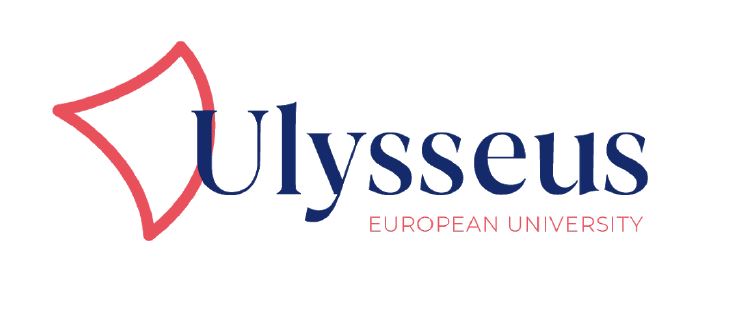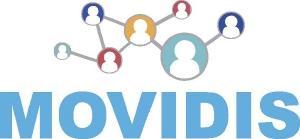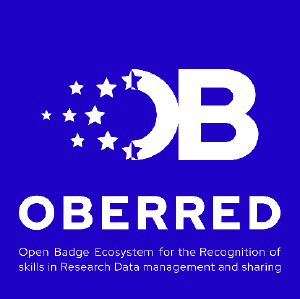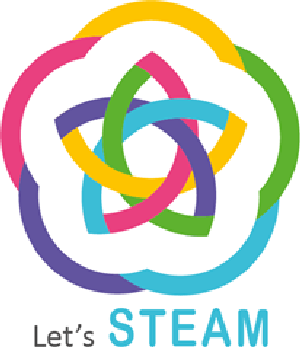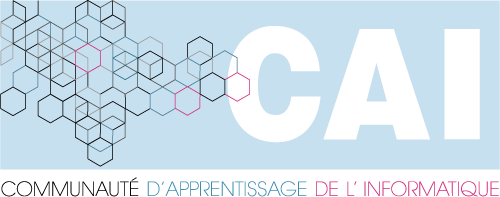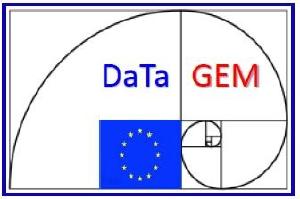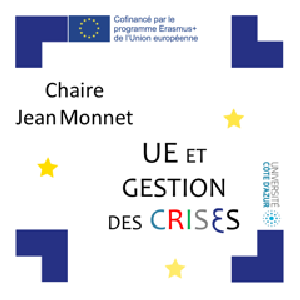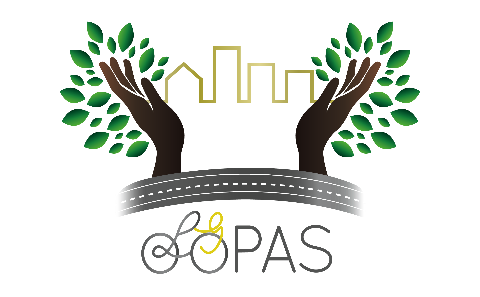Erasmus+ Projects
Erasmus+: The European University
European universities are transnational alliances bringing together several higher education establishments in Europe in order to create hubs of excellence in terms of training, research and innovation. These Alliances must not only promote mobility and internationalization of higher education but also create the appropriate conditions for the development of innovative projects in order to meet Europe's societal challenges.
- Ulysseus Alliance
-
logo ulysseus The Ulysseus Alliance aims to build a long-term alliance, a common structure and strategy for education and research, linked to the priorities of member regions and cities. Its objective is to contribute to competitiveness, innovation and employability, as well as to promote active citizenship, social inclusion, cohesion and personal development of students and citizens.
This alliance, coordinated by the University of Seville, also includes the University of Genoa (Italy), Université Côte d'Azur (France), the Management Center Innsbruck (Austria), the Technical University of Košice (Slovakia) and the Haaga -Helia University of Applied Sciences (Finland). In 2022, 2 new members joined the alliance: the University of Munster (Germany) and the University of Montenegro. The Ulysseus project goes beyond the academic environment and has the support of governments as well as political, social and economic actors in the geographical areas concerned. Université Côte d'Azur benefits, for example, from the support of the Nice Côte d'Azur Metropolis and the Sophia Antipolis Urban Community.
The participation of students and citizens is one of the added values of this project and this is why representatives of student associations from France (Fédération des associations et corporations des études des Alpes-Maritimes), from Slovakia (BEST Student Association ) and Spain (University of Seville) Association), as well as citizens' associations, were among the supporters and signatories of the Mission Statement of Ulysseus today. - Ulysseus Innovation Hubs
- Innovation Hubs are the Ulysseus innovative joint structure for collaboration. Ulysseus main activities are co-created and developed at the heart of its 8 Innovation Hubs, one at each partner University, which address Research & Development challenges shared with our regions and cities. The hubs work as concentrators of all the collaboration and cooperation activities coming from the Ulysseus community.
Their focus is to:
- Design new joint academic offer, challenge- and research-driven, transdisciplinary and inter-sectoral, integrated in flexible programs in which also key competences are provided
- Develop joint challenge-driven transdisciplinary and inter-sectoral research and knowledge transfer activities
- Facilitate and promote entrepreneurship within the academic community of students, faculty and staff to improve the number and success of startups created
- Promote citizen engagement and the appropriation of European values
- Offer scientific material conditions (technological platforms, data centers, etc.) to gain in attractivity and visibility.
Innovation Hub Ageing & Well-being
Based at Université Côte d’Azur in Nice (France), the Innovation Hub Ageing & Well-being deals with topics such as “Ageing in the city”, “Silver economy”, “Environmental impacts on Ageing and Well-being” and “Understanding the process of ageing”. Through the Innovation Hub, Université Côte d’Azur wishes to strengthen and promote innovative disciplinary, inter-, and transdisciplinary research to better address and explore the topic of ageing and wellbeing, embracing systems thinking.
Scope
Ageing and Well-being must encompass a continuum between formal science, natural science and social and human science to address the following scope:
- Health Promotion
- Components of Wellbeing
- Prevention
- From molecules to organs
- Pathological Ageing
At a transversal level, the Innovation Hub will also address:
- Acceptability
- Health Data
- Cohorts (monitoring, epidemiology, demography)
Organizational StructureContact
27 rue du Professeur Delvalle, 06300, Nice
sabrina.ono@univ-cotedazur.fr
06 19 16 07 96
ERASMUS +: INTERNATIONAL CREDIT MOBILITY
The international credit mobility represent mobility (exchange) opportunities for students and staff between Université Côte d'Azur and higher education institutions located in Erasmus+ partner countries.
ERASMUS +: STRATEGIC PARTNERSHIPS
The strategic partnerships are intended to support the design, transfer and/or use of innovative practices as well as implementing shared initiatives that foster cooperation, peer learning and experience sharing across Europe.
In the field of higher education, priority is given to key initiatives to achieve the objectives set for the European Education Area, n
- SHOUT4HE
-
logo du projet SHOUT4HE logo du projet SHOUT4HE Sharing Open educational practices Using Technology For Higher Education
The project aims to: recognize and validate innovative, high-quality teaching practices and supported by ICT in the European HEIs; share innovative practices; promote international networking and pooled learning between higher education teachers working in different disciplines; inspire higher education teachers to develop a more attractive contemporary education via the effective use of technology.
SHOUT4HE - MOVIDIS
-
logo du projet MOVIDIS logo du projet MOVIDIS Developing International Experience for Students through Virtual Mobility
The MOVIDIS project aims to give economics undergraduate students the opportunity to receive international experience through the concept of virtual mobility (VM) – Internationalization at home. It will contribute to strengthening the internationalization of the members of the consortium and will enable the strengthening of the transversal skills of students as well as the mastery of innovative teaching tools for teachers.
MOVIDIS - OBERRED
-
logo du projet OBERRED logo du projet OBERRED Open Badge Ecosystem for the Recognition of skills in Research Data management and sharing
The aim of this project is to: create a practical guide that will include the technical specifications and problems of Open Badges (OB), the roles and skills related to RDM and the principles for applying OB to RDM; create an Open Badges collaborative network in Open Science; recognize the skills acquired in sharing and managing research data.
OBERRED - LET'S STEAM
-
logo du projet LETS STEAM logo du projet LETS STEAM An educative platform based on Make Code, Circuit Python & Scratch for creativity and participatory sciences using IoT boards
The LET'S STEAM project enables teachers to learn about programming possibilities for teaching science to secondary school pupils. The aim is to ensure that the Code can contribute to a cross-disciplinary approach to all scientific and artistic objects through creativity rather than focusing on IT equipment and technology.
With LET'S STEAM, the goal is to think outside the box and break down the barriers between programming, creativity and science.
LET'S STEAM - CAI
-
logo du projet CAI logo du projet CAI Computer Science Learning Community
The objective of this project is to develop and share the educational and technological tools to foster the emergence of a community of computer science teachers who feel empowered to teach this subject (including areas such as data storage, algorithms, programming languages, IT systems and networks).
CAI - DATAGEM
-
logo du projet DATAGEM logo du projet DATAGEM Digital Transformation of Global Entrepreneurial Mindsets
This project aims to transform the mindsets of entrepreneurs so that they become global innovators and entrepreneurial leaders in the digital transformation age, to promote the necessary skills and operational tools to manage innovation and improve the process of creating new companies capable of using digital technology.
The consortium includes 7 partners from 5 countries, representing higher education institutions and training organizations digital open educational resources, educational NGOs and local authorities.
DATAGEM
ERASMUS+: CAPACITY BUILDING FOR HIGHER EDUCATION
The Capacity building projects of the Erasmus+ program aim to encourage cooperation between the EU and partner countries and help eligible partner countries rise to the challenges of managing and governing their higher education institutions. This implies improving the quality of higher education, developing new innovative educational programs, modernizing higher education systems through reforms, and encouraging cooperation between the different regions of the world through shared initiatives.
ERASMUS+ : JEAN MONNET
The Jean Monnet initiatives have the goal of promoting teaching and research excellence in European Studies across the world. These activities also aim to promote dialogue between the academic world and policy makers, with the notable aim of strengthening the governance of European Union policies.
European Studies includes the study of Europe as a whole, by placing specific attention on the European integration process both internally and externally. The subject also covers the role of the EU in the globalization age and promoting a European citizenship and dialogue between citizens and cultures.
- The Jean Monnet Chair "European Union and Crisis Management" is held by Professor Anne Millet Devalle
-
Logo chaire CJMUEGC Jean Monnet Chairs are teaching positions specializing in European integration studies. Holders of a Jean Monnet Chair teach a minimum of 90 hours per academic year, in the field of European integration studies. The Chairs are awarded to the University to which the holder depends and offer significant support for research, teaching and the dissemination of knowledge relating to the EU.
The Jean Monnet Chair awarded in September 2019 by the European Union to Professor Anne Millet-Devalle focuses on the theme "The European Union and crisis management". It aims to address crises of various natures (legal, institutional, health, humanitarian, financial, security, etc.) requiring a reaction from the Union, whether they occur outside its borders or within it, or concern the Union itself, such as Brexit.
The Jean Monnet Chair "European Union and Crisis Management"
ERASMUS+: SPORT
This project aims to develop, transfer and implement innovative practices in various sports- and physical-activity related fields with various organizations and different stakeholders who may or may not be in the sports sector.
The collaborative projects include innovative initiatives with the goal of:
Tackling sports doping at the grassroots level, especially in recreational environments such as amateur sports and fitness;
Supporting prevention and awareness-building initiatives with stakeholders involved in tackling match-fixing;
Supporting preventive, educational and innovative approaches aimed at tackling violence, racism and intolerance in sport;
support the implementation of EU strategic documents in the field of sport and other relevant policy areas: recommendations, guidelines, policy strategies, etc.
- VANGUARD
-
Virtual Advice, Nurturing, Guidance on Universal Action, Research and Development for physical activity and sport engagement at the local, national and international level.
The project meets the first objective of the ERASMUS collaborative partnerships by including physical activity in the programs for undergraduate medical school and health care institutions, so that future front-line health professionals can advise and support the increase in physical activity in a clinical setting to all patients with non-communicable diseases and during pregnancy.
- LOGOPAS
-
logo du projet LOGOPAS logo du projet LOGOPAS Assess, promote and support the involvement of local governments in physical activity and sport promotion
LoGoPAS aims to stimulate local government involvement in physical activity (PA) and promote sport among all population groups, regardless of education, income, ability or experience.

















